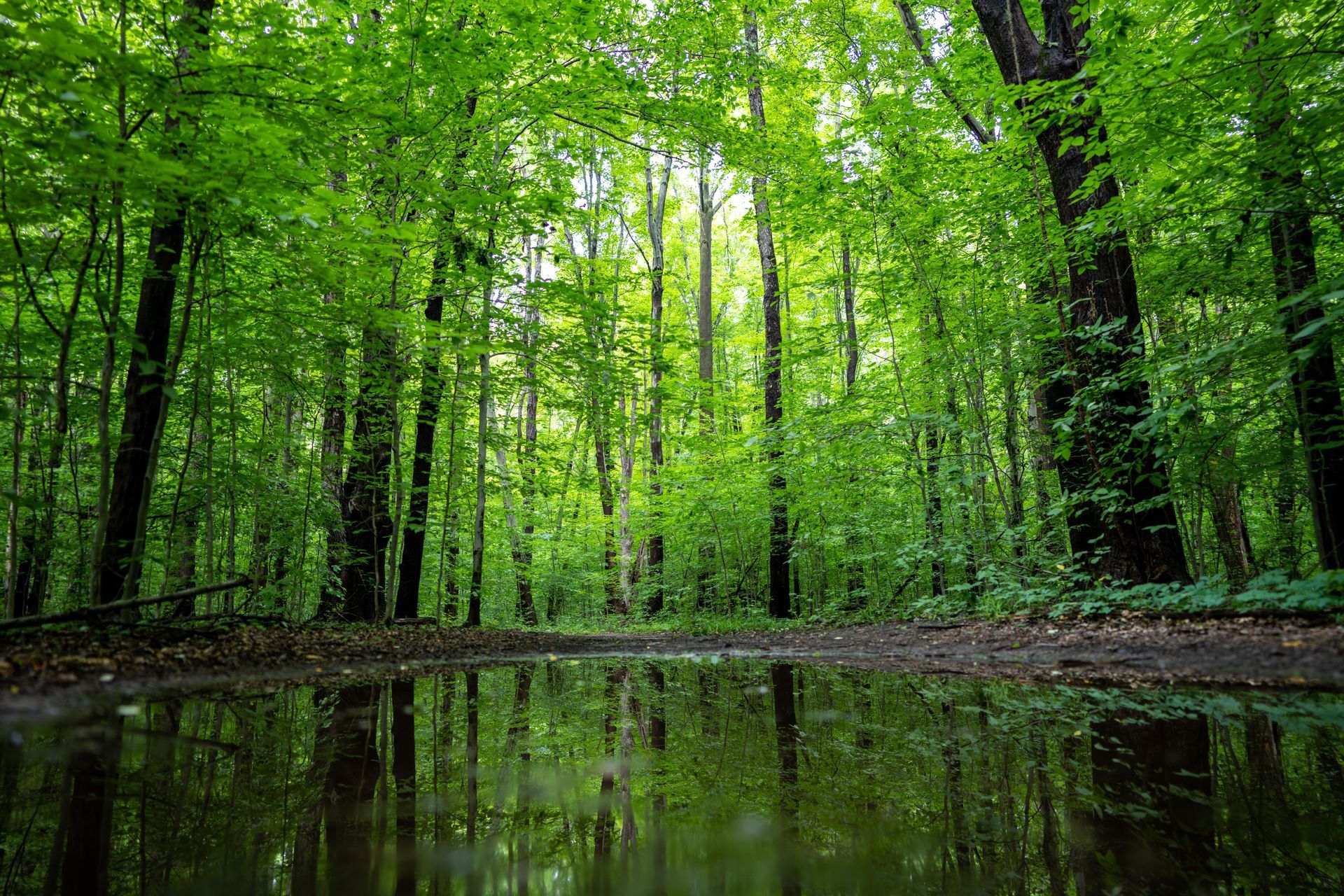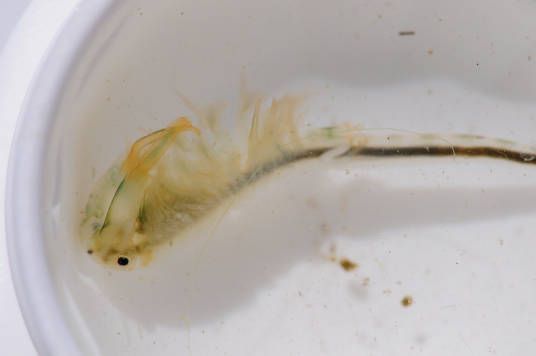Vernal Pools: Learn More About These Important Wetlands
There’s an old saying here in Michigan, “You’re never more than a few minutes away from a body of water”. Whether it’s a stream, pond, inland lake, or one of the Great Lakes, the state of Michigan is home to a large amount of water. According to the Great Lakes Commission , the Great Lakes hold about six quadrillion gallons of water, or about one-fifth of the world’s fresh water. From fishing for trout in a stream to kayaking around a small lake, Michiganders enjoy a variety of recreational activities involving water. In the summer, people can often be found laying out in the sun, boating on the water, or even surfing waves on the shores of the Great Lakes. Yet, there is one body of water found in Michigan that is very small but very important for Michigan’s wildlife: vernal pools.
What is a Vernal Pool?
Vernal pools are small isolated ponds found in forested ecosystems throughout the state. They are also known as vernal ponds, ephemeral ponds, and temporary pools. Vernal pools flood seasonally, typically filling with water in the spring or fall and then drying up in the summer. They lack the permanence of water and are not connected to any water body. In Michigan, they are most abundant where the water table is high and/or where bedrock or clay soils impact surface water infiltration. Vernal pools are restricted to concave locations in the landscape because they hold standing water.

Why are Vernal Pools Important?
Due to their seasonality, vernal pools are unable to support fish populations thus providing critical habitat for amphibians and reptiles in Michigan due to the absence of predators. Our state is home to several threatened and endangered species, including the Blanding’s turtle, spotted turtle, marbled salamander, and the Blanchard’s cricket frog. Approximately 35 Michigan species of amphibians use vernal pools for food, water, shelter, breeding habitat, and overwintering grounds. Amphibians are also an important food source for many reptiles, birds, and mammals. The common garter snake and northern water snake feed extensively on frogs and salamanders and use vernal pools regularly.
Species that occupy vernal pools often have special adaptations that help them survive in this environment. Fairy shrimp most often occupy vernal pools and have drought-resistant eggs that remain dormant until they are stimulated to hatch by flooding. Some aquatic insects like caddisflies and water beetles have developed life strategies that enable them to overwinter in vernal pools. Snails will bury themselves in the soil during dry summer conditions and re-emerge when the pools fill with water to feed.
What You Can Do to Help
Vernal pools are highly vulnerable to destruction or disturbance due to things like urban development, climate change, and invasive species. So how can you help ensure that these critical wetland habitats are protected? One way is to volunteer with the Vernal Pool Patrol (VPP) program here in Michigan. This program was created by the Michigan Natural Features Inventory (MNFI) along with other partners in 2012 to identify, map, and monitor vernal pools across the state. The VPP works with community/citizen scientists, adults, and youth to get volunteers outside and teach them about conserving vernal pools. Information collected from this program gets entered into the Michigan Vernal Pool Database. This database is important for scientists because it helps inform them and guide management decisions about vernal pools. The VPP works to enhance information, increase awareness, and increase public engagement in vernal pools and natural resource stewardship.
The post Vernal Pools: Learn More About These Important Wetlands appeared first on Michigan United Conservation Clubs.





